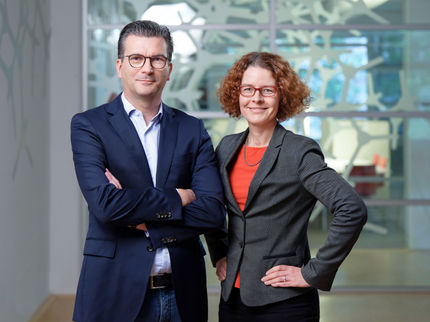One million euros for new chemical systems to convert sustainable resources
Research Award of the Werner Siemens Foundation
Advertisement
In the "project of the century" ideas competition by the Werner Siemens Foundation (WSS), the ChemSysCon project team was awarded one million Swiss francs (1.017 million euros). The aim of the funding is to develop and establish novel technologies for sustainable resource use. In the ChemSysCon project, scientists from Freie Universität Berlin, the Bundesanstalt für Materialforschung und -prüfung (BAM), and the Fraunhofer Institute for Applied Polymer Research IAP are developing new chemical systems for the conversion of sustainable resources. At the Fraunhofer IAP, Lignin - a by-product from the pulp industry - is being converted so that it can be used as a material.

Symbolic image
Computer-generated image
The project is one of six selected proposals from Germany, Switzerland and Austria submitted to the ideas competition held to mark the 100th anniversary of the Werner Siemens Foundation. In total, there were 123 project proposals. "We were very impressed by the diversity and quality of the research ideas, the enthusiasm, the future orientation, the optimism and the courage to take risks in the ideas," said the Werner Siemens Foundation.
New chlorine storage technology is cost-effective and easy to use
An important basis for the award-winning project is the new chlorine storage technology developed by Professor Sebastian Hasenstab-Riedel of Freie Universität Berlin. Chlorine is one of the most important basic chemicals in industry, plays a major role in the synthesis of more than half of all products in the chemical industry, and thus influences our daily lives like no other chemical element. However, chlorine production is an extremely energy-intensive process - in Germany, the production of approximately 5.5 million tons of chlorine annually is responsible for more than two percent of total electrical energy consumption. In addition, chlorine gas is toxic, and despite numerous regulations, the storage and transport of chlorine gas that is common today harbors a high potential risk. Researchers led by Sebastian Hasenstab-Riedel have found a solution to this problem: They developed a very cost-effective chemical chlorine storage system that binds chlorine gas in an ionic liquid with very low energy input and can also be handled easily and safely in air. The team now wants to develop this technology further and bring it to market. "One advantage would be that renewable energy could be used even more effectively for chlorine production in the future. Chlorine could also be produced in countries with high solar radiation and safely shipped to other countries for further use," explains Sebastian Hasenstab-Riedel.
Chemical treatment of biowaste and recycling of electronic waste
Furthermore, these novel chlorine-based ionic liquids can also serve the chemical processing of waste. In a WSS research center, the team intends to use these and other ionic liquids to convert biowaste such as lignin, which is a byproduct of paper manufacturing. Professor Alexander Böker, head of Fraunhofer IAP, explains, "Currently, lignin is mostly burned. In the future, it could be converted into new basic chemicals based on renewable raw materials. We want to recycle lignin to develop, for example, ion exchangers for the recovery of precious metals and rare earths. Until now, these have been made from conventional petroleum-based plastics."
Moreover, the team will further develop the recycling of electronic waste to recover important precious metals or rare earths. "With the help of ionic liquids, the electronic waste is first dissolved in an energy-saving way. Newly developed lignin-containing materials then help to separate out the individual elements in isolation and in pure form," explains Dr. Franziska Emmerling from BAM.
100 million Swiss francs for WSS research center
The award ceremony for the six winning teams will take place at a colloquium in Lucerne on June 16, 2023. One of the six projects can hope for a further grant of 100 million Swiss francs, which will be decided in early 2024. The funds will go toward the construction of a WSS research center where "technologies for sustainable resource use" will be researched and developed.




























































